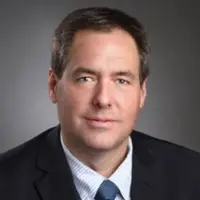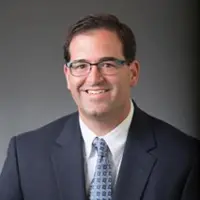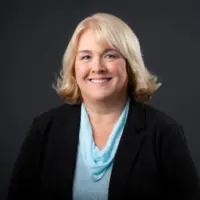About Dartmouth Hitchcock Psychiatric – Addictions
Dartmouth Hitchcock Psychiatric in Lebanon, New Hampshire is a place where you can get outpatient support that meets substance use concerns with compassion and clinical care. Their experienced staff are available to listen carefully and offer space for honest conversations about what you’re experiencing. This is a setting where your concerns are taken seriously and your personal goals are made part of your treatment plan.
Treatment for All with Specialized Care for Moms
Care at Dartmouth Hitchcock Psychiatric is designed to fit the needs of adults, young adults, and pregnant or postpartum women. Their Moms in Recovery program is one example of how they create space for healing during life transitions. We really appreciate their ability to provide structure without taking away your autonomy.
You can get a thorough evaluation that includes interviews, lab testing, and medical assessments to help guide next steps. Your treatment may include individual therapy, psychiatric evaluations, and medication assisted treatment with buprenorphine for opioid use disorders. We like that these services are offered together, so you don’t have to coordinate care across multiple places.
A Special Setting That Works With You
The clinic is located in the Rivermill Complex and offers a smoke-free, professional space. Payment is accepted through Medicaid, Medicare, TRICARE, state plans, private insurance, or self pay. This place is special because it offers both skillful care and understanding without pressure to be anywhere other than where you are today.
Things to Do in the Area
We notice that the location of Dartmouth Hitchcock Psychiatric offers many enjoyable things to do after your appointments. You might walk over to Colburn Park or visit the Lebanon Public Library for a quiet reset. The AVA Gallery offers local artwork, and the Carter Community Building Association has space to move your body or sit or meditate.
Latest Reviews
Rehab Score
Gallery
Other Forms of Payment
Medicaid is a state based program that helps lower-income individuals and families pay for healthcare. Medicaid covers addiction treatment so those enrolled can use their coverage to pay for rehab. When a program accepts Medicaid the client often pays very little or nothing out of their own pocket.
Private insurance refers to any kind of healthcare coverage that isn't from the state or federal government. This includes individual and family plans offered by an employer or purchased from the Insurance Marketplace. Every plan will have different requirements and out of pocket costs so be sure to get the full details before you start treatment.
Self-pay involves paying for treatment out of your own pocket. You can use savings or credit, get a personal loan, or receive help from family and friends to fund your treatment. If you don't have insurance or your insurance plan doesn't cover a specific program, self-pay can help ensure you still get the care you need.
Financial aid can take many forms. Centers may have grants or scholarships available to clients who meet eligibility requirements. Programs that receive SAMHSA grants may have financial aid available for those who need treatment as well. Grants and scholarships can help you pai for treatment without having to repay.
Medicare is a federal program that provides health insurance for those 65 and older. It also serves people under 65 with chronic and disabling health challenges. To use Medicare for addiction treatment you need to find a program that accepts Medicare and is in network with your plan. Out of pocket costs and preauthorization requirements vary, so always check with your provider.
Military members, veterans, and eligible dependents have access to specific insurance programs that help them get the care they need. TRICARE and VA insurance can help you access low cost or no cost addiction and mental health treatment. Programs that accept military insurance often have targeted treatment focused on the unique challenges military members, veterans, and their families face.
Addiction Treatments
Levels of Care
Outpatient Programs (OP) are for those seeking mental rehab or drug rehab, but who also stay at home every night. The main difference between outpatient treatment (OP) and intensive outpatient treatment (IOP) lies in the amount of hours the patient spends at the facility. Most of the time an outpatient program is designed for someone who has completed an inpatient stay and is looking to continue their growth in recovery. Outpatient is not meant to be the starting point, it is commonly referred to as aftercare.
Drug and alcohol addiction often takes a heavy toll on one's body. Over time, a physical dependence can develop, meaning the body physiologically needs the substance to function. Detox is the process of removing drugs and/or alcohol from the body, a process that can be lethal if mismanaged. Medical detox is done by licensed medical professionals who monitor vital signs and keep you safe, healthy, and as comfortable as possible as you go through detox and withdrawal.
Intensive Outpatient Programs (IOP) are for those who want or need a very structured treatment program but who also wish to live at home and continue with certain responsibilities (such as work or school). IOP substance abuse treatment programs vary in duration and intensity, and certain outpatient rehab centers will offer individualized treatment programs.
Treatments
The goal of treatment for alcoholism is abstinence. Those with poor social support, poor motivation, or psychiatric disorders tend to relapse within a few years of treatment. For these people, success is measured by longer periods of abstinence, reduced use of alcohol, better health, and improved social functioning. Recovery and Maintenance are usually based on 12 step programs and AA meetings.
Treatment provided at drug rehab in New Hampshire prepares individuals to handle life stressors without using substances. Participants get the tools and support they need to maintain lifelong recovery.
Many of those suffering from addiction also suffer from mental or emotional illnesses like schizophrenia, bipolar disorder, depression, or anxiety disorders. Rehab and other substance abuse facilities treating those with a dual diagnosis or co-occurring disorder administer psychiatric treatment to address the person's mental health issue in addition to drug and alcohol rehabilitation.
A combined mental health and substance abuse rehab has the staff and resources available to handle individuals with both mental health and substance abuse issues. It can be challenging to determine where a specific symptom stems from (a mental health issue or an issue related to substance abuse), so mental health and substance abuse professionals are helpful in detangling symptoms and keeping treatment on track.
Opioid rehabs specialize in supporting those recovering from opioid addiction. They treat those suffering from addiction to illegal opioids like heroin, as well as prescription drugs like oxycodone. These centers typically combine both physical as well as mental and emotional support to help stop addiction. Physical support often includes medical detox and subsequent medical support (including medication), and mental support includes in-depth therapy to address the underlying causes of addiction.
Programs
Adult rehab programs include therapies tailored to each client's specific needs, goals, and recovery progress. They are tailored to the specific challenges adult clients may face, including family and work pressures and commitments. From inpatient and residential treatment to various levels of outpatient services, there are many options available. Some facilities also help adults work through co-occurring conditions, like anxiety, that can accompany addiction.
Young adulthood can be an exciting, yet difficult, time of transition. Individuals in their late teens to mid-20s face unique stressors related to school, jobs, families, and social circles, which can lead to a rise in substance use. Rehab centers with dedicated young adult programs will include activities and amenities that cater to this age group, with an emphasis on specialized counseling, peer socialization, and ongoing aftercare.
Clinical Services
Group therapy is any therapeutic work that happens in a group (not one-on-one). There are a number of different group therapy modalities, including support groups, experiential therapy, psycho-education, and more. Group therapy involves treatment as well as processing interaction between group members.
Staff

Joanne M. Conroy, MD
Dartmouth Health CEO & President

Craig W. Beck, MBA, MHA
Dartmouth Hitchcock Clinics, Southern Region COO

Steven L. Bernstein, MD
Dartmouth Hitchcock Medical Center, Chief Research Officer

Michael S. Calderwood, MD, MPH
CQO

Duane A. Compton, PhD
Chief Academic Officer

Wendy E. Fielding, MBA
CFO & SVP of Finance

Tracy A. Galvin, MSN, RN, NEA-BC
Chief Nursing Officer

Jennifer E. Gilkie
Dartmouth Health Chief Communications and Marketing Officer
Contact Information
85 Mechanic St
Building F
Lebanon, NH 03766
